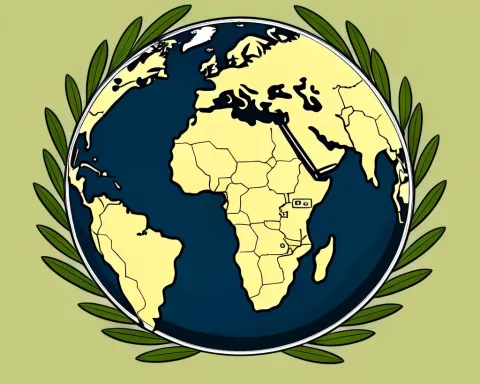South African President Cyril Ramaphosa has announced a remission plan for non-violent offenders in the country’s prisons. The aim of the plan is to alleviate the alarming 43% overcrowding crisis in its 342 correctional and 218 community centers. The decision could lead to the release of over 24,000 prisoners, including 3,000 individuals slated for deportation.
Overcrowding Crisis in South African Prisons
South Africa’s prison facilities currently house around 212,200 inmates, including approximately 9,300 foreign nationals. Overcrowding poses a significant threat to the health, security, and management of inmates and contributes to the rise of gangsterism. Additionally, overcrowding undermines the rehabilitation and development programs provided by the Department of Correctional Services.
The recent fire at Kutama Sinthumule prison in Limpopo, which resulted in the loss of 3,024 beds and a 4% increase in overcrowding, pushed prison occupancy to 147% of capacity. This forced President Ramaphosa to announce the remission plan.
Eligibility for Remission Plan
The remission plan is limited to offenders convicted of non-violent and non-sexual crimes. The plan does not apply to offenders serving life sentences, sex offenders, those guilty of tampering with essential infrastructure, and those declared dangerous criminals. Eligible offenders can receive a 24-month remission if they complete a pre-release program, risk assessment, and provide fingerprints and DNA samples for comparison with the South African Police Service database.
Implications of the Remission Plan
Over 24,000 inmates, including 15,000 under correctional supervision and parole, stand to benefit from the remission plan, along with approximately 3,000 foreign nationals serving short-term sentences who will be deported. However, concerns have been raised regarding the reintegration of released prisoners into society and the potential impact on crime rates and public safety.
Hunger Strike and Zimbabwe Exemption Permit Holders Association
The announcement coincided with dozens of Zimbabwean inmates planning a hunger strike at Pollsmoor prison, one of South Africa’s largest and most overcrowded facilities, to protest living conditions, xenophobic attacks, and parole denial. At the same time, the Zimbabwe Exemption Permit Holders Association (ZEPHA) filed an application in the Pretoria High Court, seeking to address the state’s inaction regarding the release of Zimbabwean prisoners eligible for parole.
Advocate Simba Chitando, legal counsel for ZEPHA, welcomes the President’s decision and hopes for swift processing of parole and deportation for foreign prisoners.
The remission plan announced by President Ramaphosa has far-reaching implications for inmates, their families, and communities. While the government’s intent to address prison overcrowding is commendable, it is essential to ensure that rehabilitation and development programs are in place to support the transition of these individuals back into their communities.












